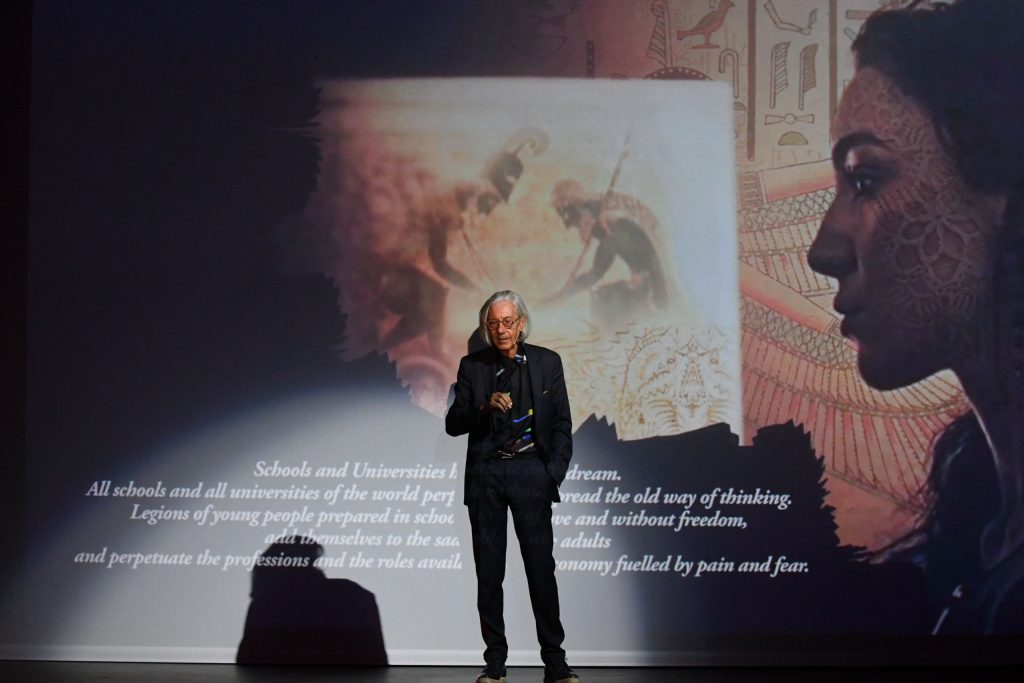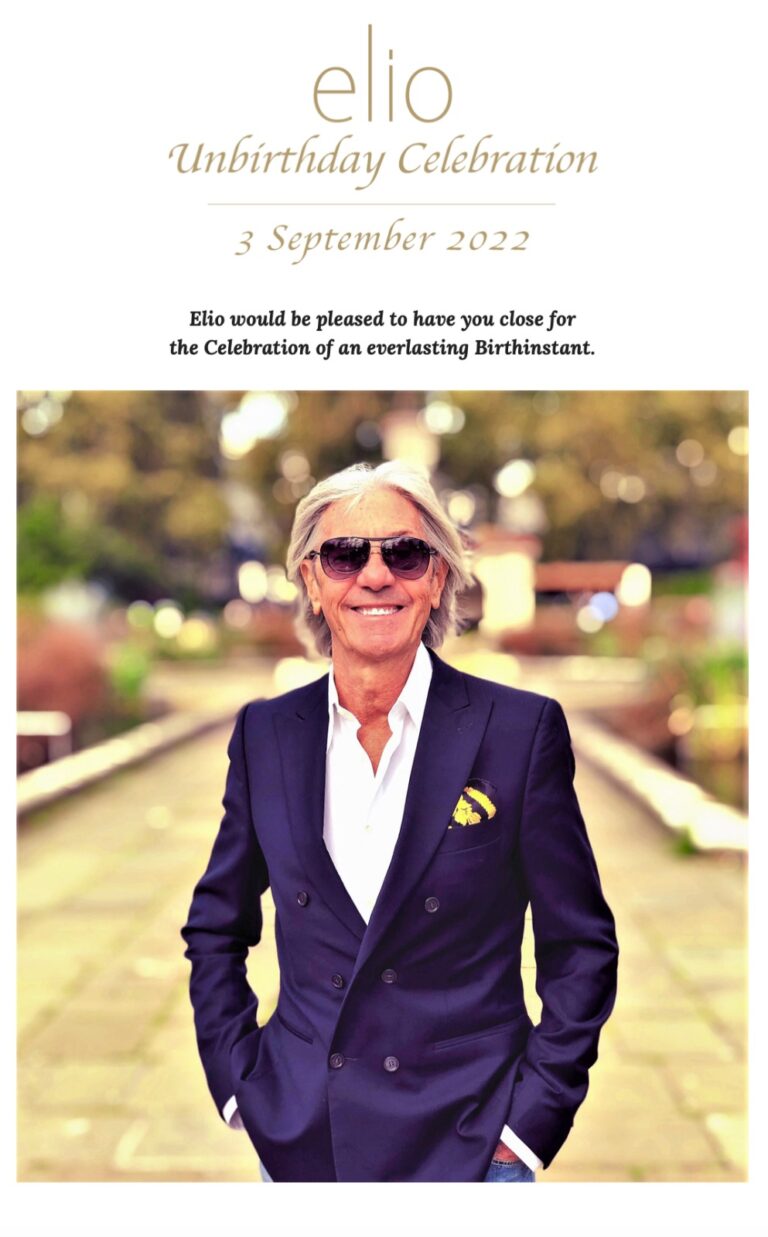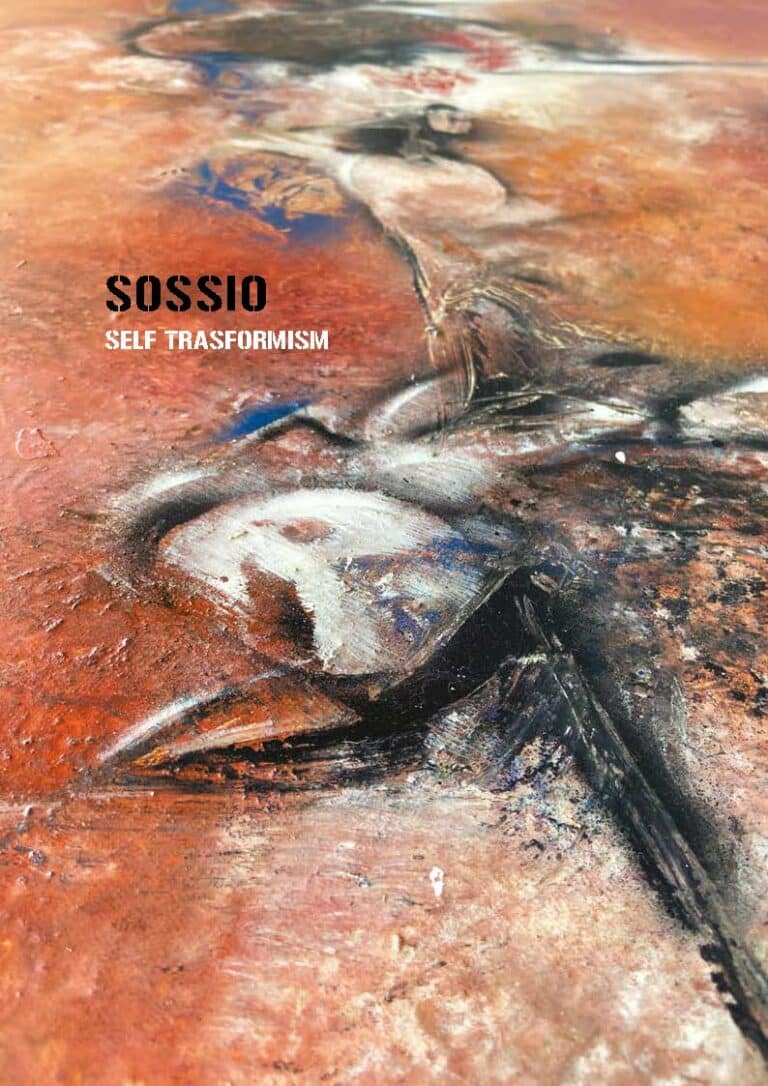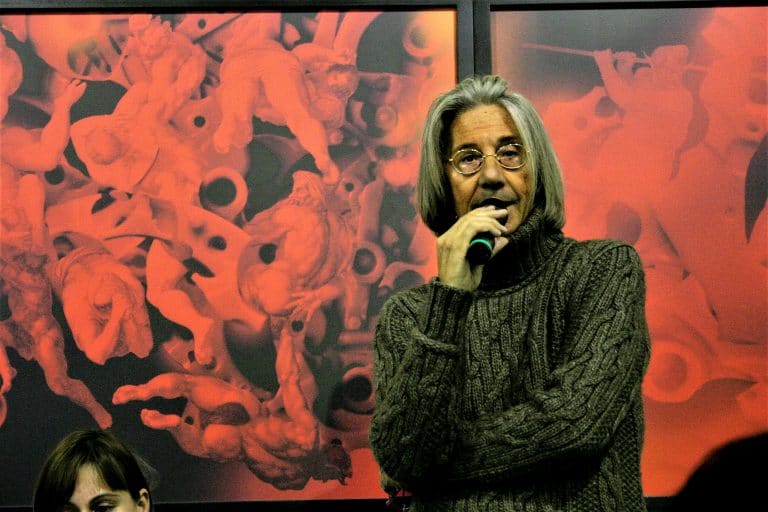Self-observation is, for a man, the way to act from within
Self-observation is the way to act within
In the most terrible conditions of imprisonment and in the lives of each of us we can see how joy, enthusiasm, aspiration, optimism, positivity multiply our ability to turn obstacles and difficult conditions into opportunities (The City of Sun, Tommaso Campanella)
Science knows how to calculate the energy required to lift a certain weight or to move a table. It can tell us how many calories are needed and which foods and in what quantities we must eat them. But we still do not know where energy comes from and how to collect and manage it to carry out more complex and more truly human functions and what the secret of their interaction is. Tommaso Campanella wrote “The City of the Sun” in the most terrible conditions of imprisonment and in the lives of each of us we can see how joy, enthusiasm, aspiration, optimism, positivity multiply our ability to turn obstacles and difficult conditions into opportunities.
But how can we produce and manage the necessary energy?
It is certain that while we can double the number of meals or sleeping hours without increasing, or even reducing, the creative ability and the balanced mental and emotional reaction, we can also observe that an emotion, for example, can multiply many times over physical strength, endurance and a man’s effort. The highest energy seems to arrive in support of physical and motor functions but, conversely, coarse energy cannot provide propulsion to the intellectual and emotional centres except for a short time, and by poisoning them and flooding them.
That is what happens when you try, as is often the case, to resolve with food or sleep situations that need to be addressed with energy that those foods cannot produce properly. The result is obesity and inertia in the place of creativity, intuition and willpower.
To understand the true extent of the range and complexity of human nutrition in relation to the production of energy we need to acknowledge the existence of an invisible, but vitally important, food. A “thin” food made of perceptions, sensations and emotions that include beauty, rhythm and poetry among the truly human foods.
In an age and society like ours, where food for dogs and cats has reached such a high level of quality and sophistication in the ingredients and presentation, you need to give a new definition to what really is food for man.
This awareness could revolutionise the conception of human food that can no longer simply be limited to production, preparation and eating, especially with the emergence of restaurants for animals (one was opened recently in Turin).
In fact the restaurants for a still semi-animalistic humanity, at the dawn of consciousness, have always existed and the recent expansion of fast food, mass catering, has only modernised the look, streamlined the organisation and exaggerated the features.
And so we can understand that, as well as the vanity of fashion, having a rest in a room of an elegant Hotel or dinner at a great restaurant, well served, wrapped in impressions, feelings and perceptions of quality, they are adding a valuable food, invisible but concrete, which completes and integrates the sleep and food, to restore us completely.
Therefore the human organism is a laboratory that continually refines and transforms the external nutritive material, from coarser to finer, to get the different qualities of propellant to distribute to the various centres that need them to operate.
Understanding how the human machine works, the production and management of energies (we can now use the plural) it needs, is essential for anyone who wants to govern their own lives and the lives of other men.
To reach this knowledge a preparatory school is required, a long process of self observation and efforts that are so intense that few men can do it. These special men have existed in every era. We call them leaders or remarkable men. The Greeks called them heroes and demigods, the only ones who were entitled to a destiny.
Under the conditions of an ordinary life, valuable energy is continually wasted unconsciously through a thousand losses that every day a man causes himself and produces in others, with the production and the expression of negative emotions, mediocre ways of thinking and acting, incorrect physical attitudes (postures) and the almost-continuous internal recital of a song of sorrow, through which he internally maintains an almost permanently foggy condition made of doubts, worries, anxieties and fears.
Energy is spent chiefly on unnecessary and unpleasant emotions, on the expectation of unpleasant things, possible and impossible, on bad moods, on unnecessary haste, nervousness, irritability, negative imagination, day dreaming. Energy is wasted on unnecessary tension of the muscles, on perpetual chatter, on the constant waste of the force of attention.
So much so that, from the standpoint of energy and its management, the most expressive metaphor of an ordinary man is a colander. He will in fact lose energy through the thousand holes produced by a thousand deaths every day; not to mention the anarchy of the centres whereby in an unbalanced man each centre (motor, intellectual and emotional) tends to try to do (badly) the work of the other centres, stealing energy from each other. Thus the physical man thinks and feels mechanically and repetitively, while in the emotional man thought and action have a spastic relationship between them and the mental man intellectualises his emotions and dries them up.
“Unfortunately, there is something wrong with the laboratory. The forces controlling the distribution of combustibles among the different centres often make mistakes and the centres receive fuel that is either too weak or easily inflammable. Moreover, a great quantity of all the combustibles produced is spent quite uselessly; it simply runs out; is lost… It must be noted that the usual organism produces in the course of one day all the substances necessary for the following day. And it very often happens that all these substances are spent or consumed upon some unnecessary and, as a rule, unpleasant emotion. Bad moods, worry, the expectation of something unpleasant, doubt, fear, a feeling of injury, irritation, each of these emotions in reaching a certain degree of intensity may, in half an hour, or even half a minute, consume all the substances prepared for the next day; while a single flash of anger, or some other violent emotion, can at once explode all the substances prepared in the laboratory and leave a man quite empty inwardly for a long time or even forever.
All psychic processes are material. There is not a single process that does not require the expenditure of a certain substance corresponding to it. If this substance is present, the process goes on. When the substance is exhausted, the process comes to a stop “. (In Search of the Miraculous pag. 197/198 P.D. Ouspensky).
We can determine exactly how much physical energy we need to develop a physical effort and we know how to acquire it and refill it, but we do not know what kind of energy we need to change a thought, an emotion or to get out of a certain state of being. But above all we do not know how to produce it in us and how to manage it.
What is interesting is to observe that it is almost impossible to change a thought, a mood, and an emotion in ourselves.
An ordinary man, trapped in the repetitiveness and excessive deficits, locked in emotional, intellectual and physical routines, has two possible ways to work on themselves and to bring aid to this condition: an internal way and an external way. Listening to good music, inspirational readings, impressions and feelings of positivity, vitality, the intentional change of an attitude, habit, behaviour, or physical exertion, or even changing a single word of personal vocabulary, produces energy that can change a state of being or act on a certain course of thoughts. This is outside help.






